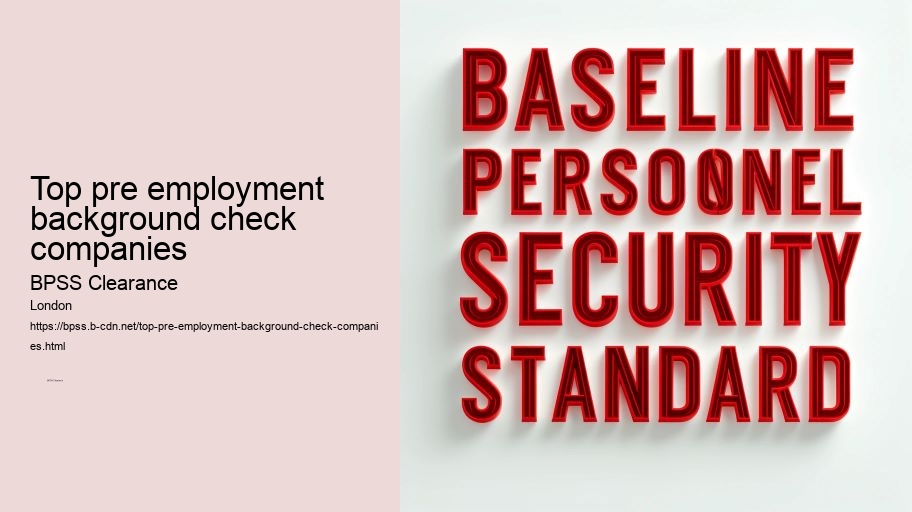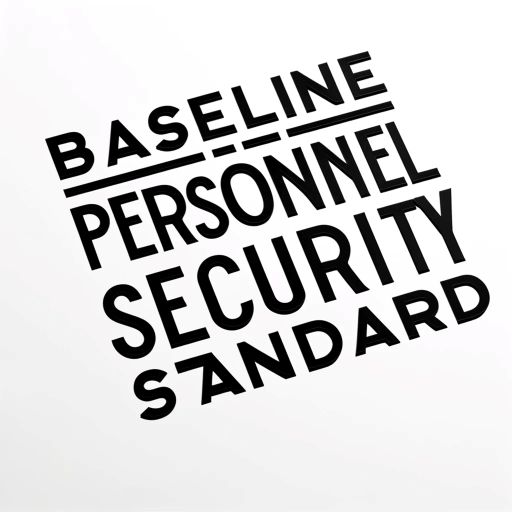
BPSS checks are typically required for individuals working in, or on behalf of, the UK government. This includes various roles within the public sector, such as in defense, health services, and law enforcement. Additionally, private sector employees who are contracted to work on government projects that require access to sensitive or classified information also need to undergo these checks.
The integration of digital technologies has streamlined the BPSS clearance process, making it more efficient and less prone to errors. Digital solutions allow for the rapid processing of checks and secure storage of sensitive data, enhancing the overall security and efficiency of the vetting process.
Employment history checks are another key component of BPSS clearance, providing insight into an individual's work behavior and integrity. These checks help verify the accuracy of the information provided by the applicant and uncover any discrepancies or gaps in employment that might need further investigation. This step is crucial in building a comprehensive profile of the candidate's past professional conduct.
For roles where exposure to SECRET and TOP SECRET information is possible, BPSS clearance becomes even more significant in safeguarding classified data. Additionally, government contracts frequently require BPSS checks as a preventive measure to enhance security measures.
BPSS checks are designed to serve as a preliminary screening for individuals seeking to work in sensitive or secure environments, particularly within the government or its contractors. The BPSS is primarily concerned with establishing a baseline of trustworthiness and integrity, ensuring that all employees meet a standard level of security before they commence employment.
Compliance with BPSS checks is not only about adhering to legal requirements but also about ensuring the safety and security of governmental operations and sensitive information. Organizations that fail to properly conduct these checks risk breaches of security, financial penalties, and damage to reputation. Hence, BPSS checks are an essential aspect of security practices for entities associated with the UK government.

Another key distinction is in ongoing monitoring and renewal requirements. BPSS does not have a formal ongoing monitoring or renewal policy; it is primarily conducted at the time of hiring. In contrast, BS7858:2019 requires that the screening process is updated every three years, or more frequently depending on company policy, to ensure that the security status of employees does not change over time.
DBS checks, on the other hand, are regulated by the Home Office and are designed to prevent unsuitable people from working with vulnerable groups. The DBS also maintains barred lists which prevent individuals who pose a known risk from working with children or vulnerable adults, something not covered by BPSS checks.
While BPSS itself is not mandated by specific laws, it operates under the broader legal and regulatory framework that governs national security and employment practices in the UK. BPSS clearance procedures are based on standards set by the UK Government, particularly by the Cabinet Office, which outlines the national security vetting policies.
The process of conducting BPSS checks is systematic and standardized to ensure consistency and thoroughness.
- Complete and submit all required documentation accurately and truthfully.
Remember to disclose any significant periods of six months or more spent abroad within the last three years as part of the BPSS clearance procedure. By organizing and presenting these essential documents accurately, you can expedite the verification process and demonstrate your suitability for accessing UK OFFICIAL assets.

AI and machine learning are increasingly being integrated into the BPSS process, enabling predictive analytics to assess risks associated with certain profiles or patterns. This proactive approach helps organizations preempt potential security risks before they become problematic by analyzing trends and behaviors gleaned from past BPSS checks.
The incorporation of digital technologies in BPSS has allowed for the integration of biometric verification processes such as fingerprinting and facial recognition. These technologies provide an additional layer of security by ensuring that the identity information provided by the applicant matches biometric data, further securing sensitive positions within government and related sectors.
While DBS checks are significant for specific sectors like healthcare and education, BPSS is tailored for individuals with access to government assets and secret information.
Ensuring you have all these documents in order will help streamline the verification process and increase the chances of successfully obtaining BPSS clearance.
In summary, while BPSS checks provide a security baseline for individuals primarily working within or for the UK government, DBS checks serve to protect vulnerable groups from potential harm. Both types of checks are crucial, yet they serve different and complementary purposes within the spectrum of employment background screenings in the UK. Organizations must understand the differences to ensure they are implementing the correct type of check for their specific needs.
Baseline Personnel Security Standard (BPSS) clearance is a fundamental security check within the UK, primarily designed to prevent individuals who may pose a threat to national security from gaining access to government and sensitive information. This clearance provides a baseline level of assurance on the reliability, trustworthiness, and integrity of prospective personnel.

To secure BPSS clearance, it's imperative to provide the necessary documents such as proof of identity, employment history, national and immigration status, details on criminal records, and periods spent abroad. Adhering to these requirements is crucial for successfully obtaining BPSS clearance and gaining access to UK OFFICIAL and SECRET assets. Be sure to thoroughly verify all documents for accuracy and completeness before submitting your application.
These components collectively contribute to a thorough assessment of an individual's background, aiding organizations in making informed decisions regarding their suitability for roles requiring access to sensitive information.
How Much Does a BPSS Check Cost? When looking into the cost of a BPSS check, you'll find that it can vary based on the service provider and the specific checks needed.
